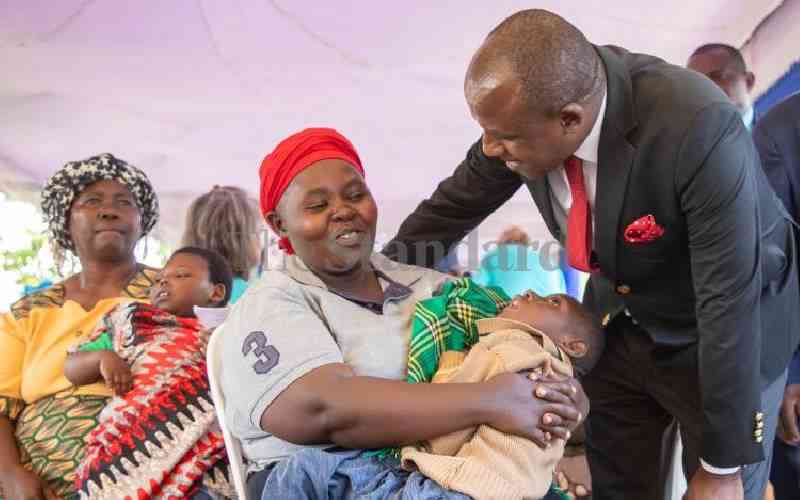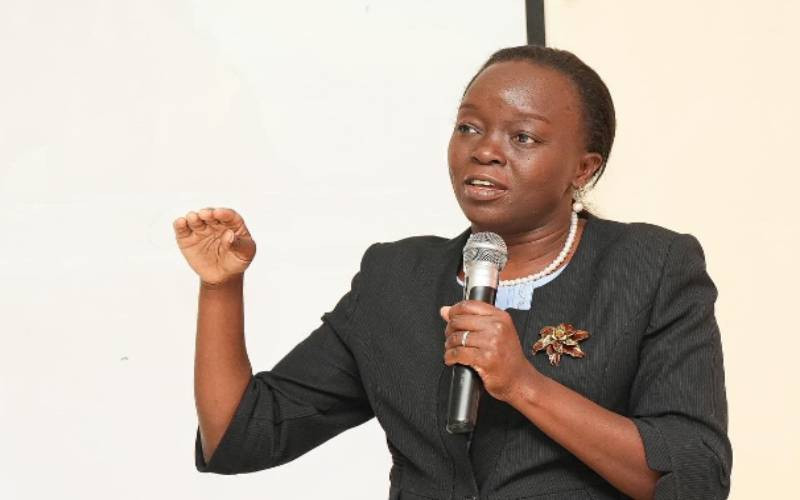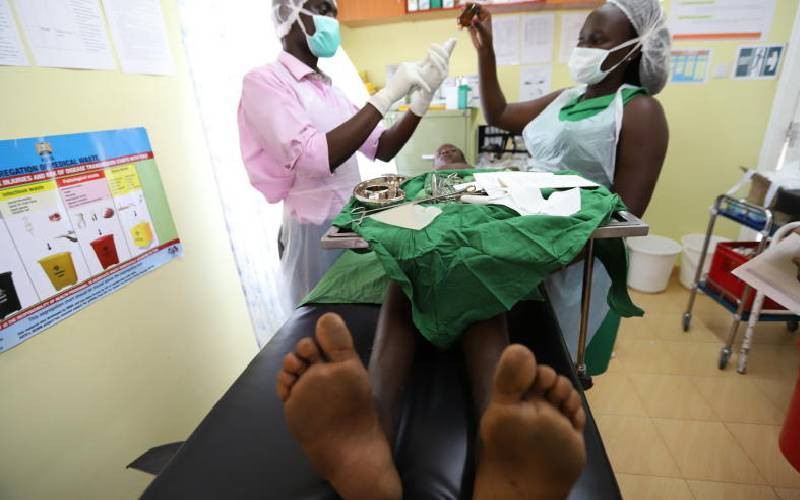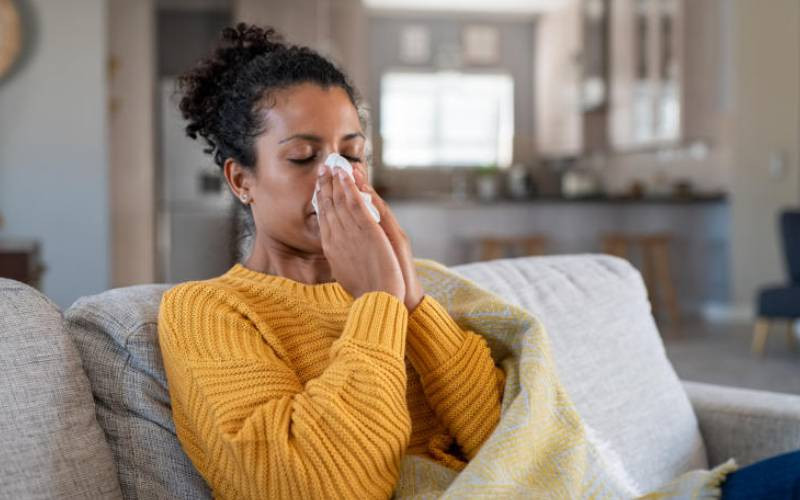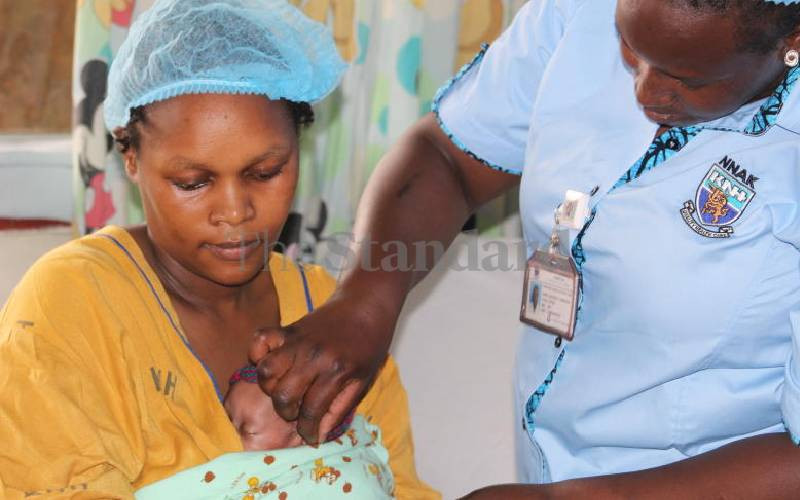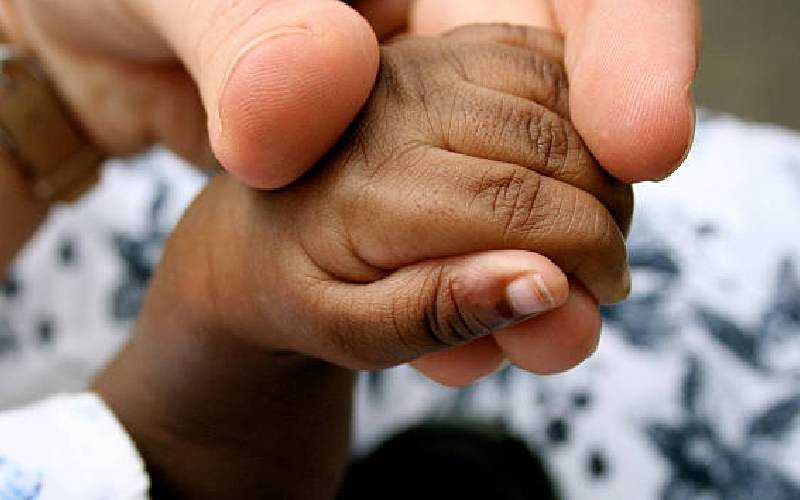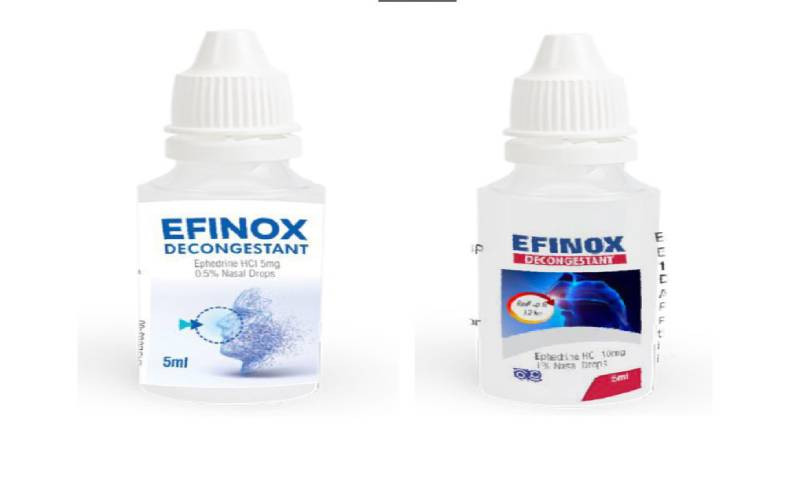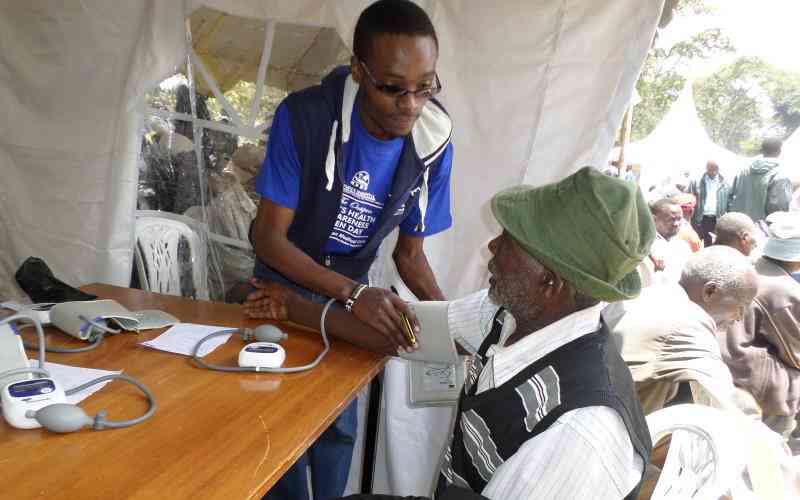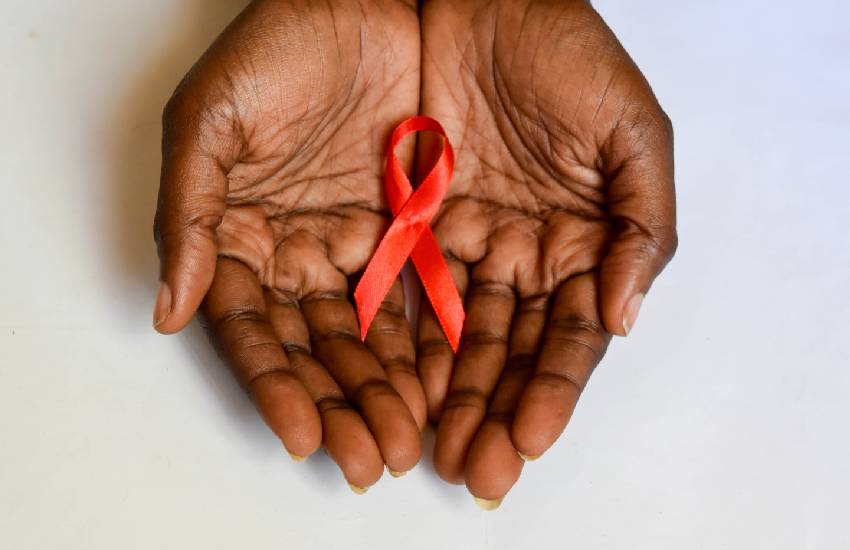
The shortage of vital HIV drugs in times of the coronavirus pandemic is complicating lives of those living positively with the condition. The drugs in short supply help in fighting opportunistic illnesses and many are afraid of contracting Covid-19 under the circumstances.
The shortage of drugs related to HIV has been occasioned by withdrawal of donor funding and the government concentrating its medical efforts and money in fighting Covid-19. This situation has made Beatrice Konyiha, a 50-year-old widow from a village in Kisumu, a scared woman for a couple of months. Like many Kenyans living with HIV, she has been unable to access septrin, an antibiotic that helps fight against opportunistic infections for those living with HIV.
The shortage of septrin has been complicated by the Covid-19 pandemic, which has increased the risk of infections despite the wearing of masks, use of sanitisers and social distancing. Septrin was initially available at Rabuor health centre, but there is now a stock out, a shortage worsened by the pandemic. A single tablet of septrin costs Sh20 at local chemists, but she cannot raise the money, as the casual jobs she does are scarce.
Doctor prescribed septrins, but no cash
The Rabuor health centre provides services to at least 2,500 HIV survivors, but Dickson Malit, a clinician, says septrin has been out of stock for more than 12 months, and that “all drugs for management of HIV, apart from septrins, are being supplied by KEMSA.”
Beatrice, who was diagnosed with HIV in 2019 after the death of her husband, has flu and complains of joint pains. “It is such a tough moment for me. I am getting weaker and weaker. A doctor prescribed septrins but I do not have money.” The mother of four cannot afford meals rich in iron to boost her immunity. But it is the shortage of the drug that puts HIV victims at risk of opportunistic infections.
In the middle of this shortage crisis, the National Empowerment Network of People Living with HIV and Aids in Kenya (NEPHAK) wrote to the Ministry of Health lamenting that as patients were being forced to take home less medication “a shipment with ART from US government is sitting at the port under unclear circumstances. These medications are from the US to help save people and prevent new HIV infections,” reads a letter addressed to the Ministry of Health.
The drugs have to be inspected at the port by Kenya Bureau of Standards (KEBS) and taxes paid alongside the railway development levy, the absence of which they go for a waiver.
NEPHAK boss Nelson Otwoma says: “The government has said these drugs cannot go for a waiver and they cannot pay tax, yet the American government says we brought medicines for free so we cannot pay taxes to our grant. So the life-saving drugs are still stuck at the port.” He adds that the ministry has not yet responded to their letter. He has appealed to the government to invest in ARVs and stop depending on donor funding.
As this state of affairs continues, Nancy Roba, a first-time mother from Bondeni slums in Nakuru, was forced to terminate breastfeeding her baby after an acute shortage of nevirapine syrup - a drug that prevents mother to child HIV transmission.
The syrup was out of stock at Bondeni Maternity, where “a nurse advised me to stop breastfeeding as I risked having him contract the virus.”
A nurse at the facility who requested anonymity told My Health septrins for adult patients had been missing since January last year after President’s Emergency Plan For Aids Relief (PEPFAR) funding came to an end. “Though there are some doses of nevirapine syrups, the supply is not sustainable,” said the nurse, adding: “Adults picking ARVs are advised to buy septrin in commercial pharmacies to prevent infection.”
“It is at childhood that children should be protected at any cost from contracting the virus,” says a woman who has lived with the virus.
Peter Cherutich, a public health expert and HIV researcher, says ARVs maintain the health of an infected person, free of opportunistic infections, both in infants and adults.
When it comes to ARVs drugs, a differentiated service delivery method of supplying drugs is used. Kenya has more than 1.2 million people living with HIV and using the ARVs. All of them cannot be allowed to crowd in health centres especially during this Covid-19 period,” says Dr Cherutich.
Names of HIV positive people in this story have been changed on their request.
 The Standard Group Plc is a multi-media organization with investments in media platforms spanning newspaper print
operations, television, radio broadcasting, digital and online services. The Standard Group is recognized as a
leading multi-media house in Kenya with a key influence in matters of national and international interest.
The Standard Group Plc is a multi-media organization with investments in media platforms spanning newspaper print
operations, television, radio broadcasting, digital and online services. The Standard Group is recognized as a
leading multi-media house in Kenya with a key influence in matters of national and international interest.

